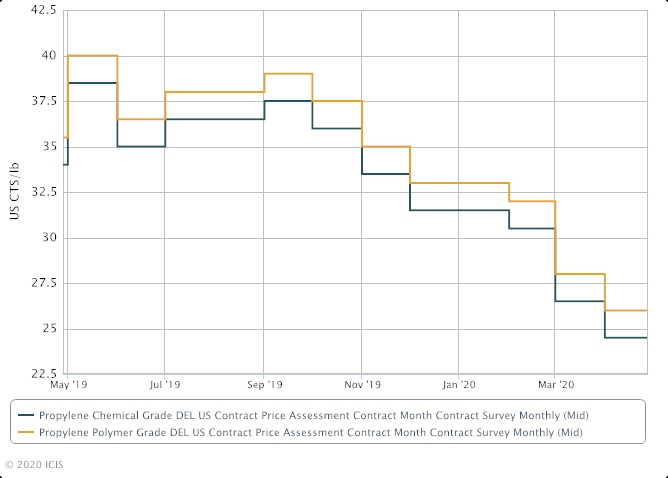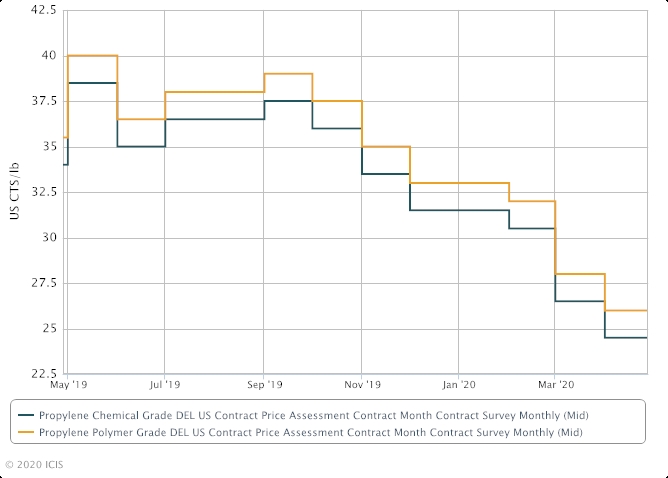HOUSTON–US June propylene contracts settled at
a 0.5 cent/lb increase from May, as spot prices
rose amid production issues.
The settlement puts June polymer-grade
propylene (PGP) contracts at 26.5 cents/lb
($584/tonne) DEL (delivered) and chemical-grade
propylene (CGP) at 25.0 cents/lb.
The settlement marks the first increase since
September, when
contract prices reached 39 cents/lb.

Spot prices rose throughout the month as
production issues curbed supply.
Front-month PGP traded in June at 21.50-28.00
cents/lb, compared with 20.00-24.00 in May.
BASF Total Petrochemicals’ cracker remains down at Port
Arthur, Texas. Ethane only comprises around
one-quarter of the cracker’s feedslate. The
remainder consists of heavier,
propylene-yielding feeds, so the outage removes
more propylene supply than at an average US
cracker.
Enterprise Products’ Mont Belvieu, Texas
propane dehydrogenation (PDH) unit was first
reported offline on 4 June. The PDH has a
propylene capcity of 750,000 tonnes/year.
Demand for the largest propylene derivative,
polypropylene (PP) is showing signs of gradual
improvement, particularly in the packaging
sector, but has not yet recovered to pre-crisis
levels due to continued sluggishness from the
appliance and automotive sectors.
The main outlet for propylene is as a feedstock
for PP. Propylene is also used to produce
acrylonitrile (ACN), propylene oxide (PO), a
number of alcohols, cumene and acrylic acid.
Major US propylene producers include Chevron
Phillips Chemical, Enterprise Products,
ExxonMobil, Flint Hills Resources and Shell
Chemical.
Thumbnail photo of a polypropylene (PP)
bottle (Credit: Shutterstock)


